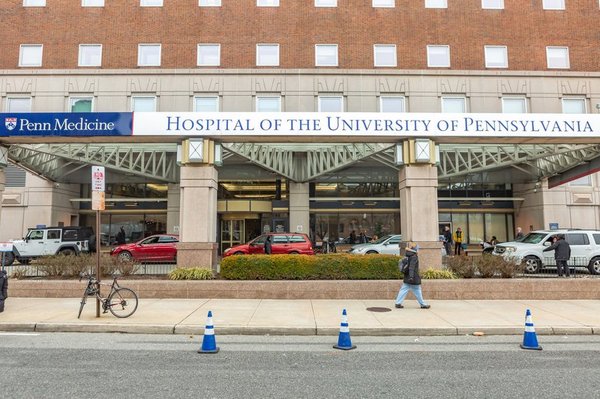Philadelphia-area hospitals are experiencing an uptick in COVID-19 infections, public health officials said. Although numbers are much lower than they were at the height of the pandemic, the city is advising residents to take "reasonable precautions" to minimize the risk of catching or spreading the coronavirus.
As of Thursday, 60 patients were hospitalized with COVID-19 infections, the Philadelphia Department of Public Health said. It's the first time the number of COVID-19 hospitalizations has exceeded 50 since the spring, officials said.
- READ MORE:
- Nearly 9 of 10 health care workers admit to picking their noses – and they're more likely to get COVID-19, study finds
- Loss of smell no longer a common sign of COVID-19 infection, researchers find
- COVID-19 cases are rising in the U.S., but the risk remains 'low' in Philadelphia
The city is advising Philadelphians to stay at home and get tested for COVID-19 if they're feeling sick, ensure they're stocked up on masks, tests and hand sanitizer, and consider wearing masks in crowded indoor spaces to help prevent the spread of the virus, especially among more vulnerable sectors of the population.
This public health warning is not as dire as the ones issued during the three-year global health emergency. The federal government, and by extension, cities like Philadelphia, formally ended the public health emergency in May after the World Health Organization declared that COVID-19 was no longer a global health emergency. Still, the coronavirus has continued to spread and develop new variants even as overall infection rates are well below their pandemic heights.
"In 2023, living with COVID-19 is a bit like living with the potential for severe storms," said Health Commissioner Dr. Cheryl Bettigole. "Fortunately, we no longer need to put our lives on hold or miss out on important events. But we do need to stay aware of the virus and to be a bit more careful when we see signs of an increase in spread. By taking reasonable precautions, we can help prevent the infection from affecting people at highest risk."
In late July, the U.S. Centers for Disease Control and Prevention reported a nationwide increase in COVID-19 cases sparked by an increase in summertime travel and hot weather causing more frequent indoor gatherings. Despite the national increase, the COVID-19 risk remained low in Philadelphia, as public health officials were not seeing a notable increase in hospitalizations or other metrics used to ascertain the rate of infection.
Things have changed in the last month. Though Philly's overall risk is still considered low, the slight increase in hospitalizations is enough to compel public health officials to remind people to be cautious. Nationwide, COVID-19 hospitalizations have increased about 19% over the past week, according to the CDC.
Though COVID-19 no longer represents a public health emergency globally or in Philadelphia, the pandemic took a serious toll. The global death toll from COVID-19 is nearly 7 million, according to the World Health Organization.


